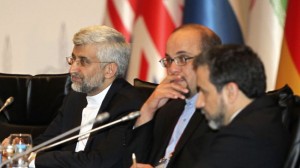 Bill Keller’s recent column in the New York Times points out the uncertainties of a pre-emptive strike on Iran, noting the consensus that an attack would only delay an Iranian nuclear program for a short time while giving rise to many unintended consequences.
Bill Keller’s recent column in the New York Times points out the uncertainties of a pre-emptive strike on Iran, noting the consensus that an attack would only delay an Iranian nuclear program for a short time while giving rise to many unintended consequences.
Keller argues that the commonly presented choice – bomb Iran, or Iran gets the bomb is a false dichotomy. In fact, there is a third option: a negotiated deal in which Iran is allowed to enrich for civilian use, subject to monitoring and verification, in exchange for gradual sanctions relief. The case for the third option is strong. First, U.S. intelligence continues to assess that Iran has not yet made the decision to pursue a nuclear weapon. Second, transparency – achieved through a strict monitoring and verification regime – is the key to answering the unanswered questions about Iran’s previous nuclear weapons work and current breakout capacity.
Third, there are signs that a negotiated solution such as the one outlined by Keller is possible. In May 2012, during talks between the P5+1 states and Iran, Iranian representatives expressed a desire that sanctions relief become a point of discussion – indicating that the current sanctions are effective.
Finally, there are simply too many unknowns with regards to the consequences of a pre-emptive strike. The unintended consequences could include pushing Iran towards development of a nuclear weapon, further isolation, the shattering of the current diplomatic front, oil price spikes, and Iranian-sponsored attacks against American and Israeli targets.
Keller’s editorial reaffirms the current consensus: diplomacy is still the best option with Iran. We have not been forced into the choice of war or a nuclear-armed Iran – nor should we allow ourselves to be.


